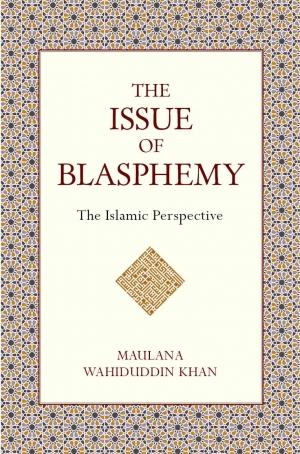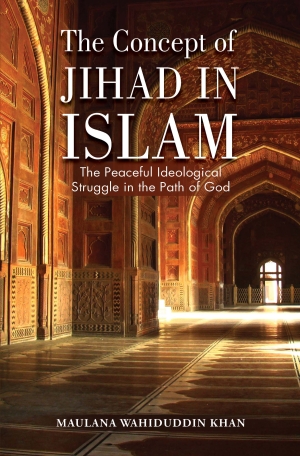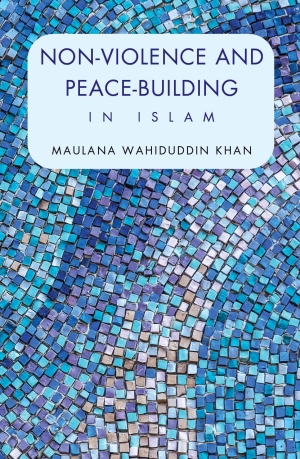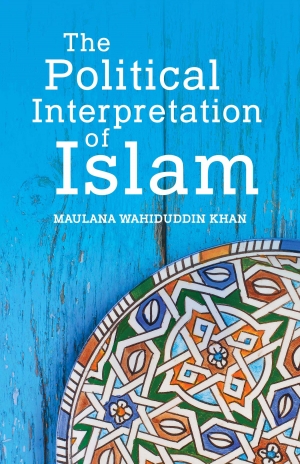To reveal the true face of Islam, we must remove misconceptions about Islam. Maulana Wahiduddin Khan’s literature and talks remove the misconceptions about Islam by ‘differentiating between Islam and Muslims, and judging Muslims in the light of Islamic teachings and not vice versa.’
The teachings of Islam are enshrined in its original sources: the Quran, the Word of God, and Sunnah, the sayings and actions of Prophet Muhammad. If you really want to know what is Islam, you must look to its sources: The Quran and the Sunnah. It presents Islam as it is, drawing on its sources rather than judging it by later interpretations and commentaries or the practices of present-day Muslims in different parts of the world. Unfortunately, a section of Muslims is engaged in violent and aggressive activities, wrongfully indeed, in the name of Islam. These violent activities of Muslims reach the people through the media. For this reason, people come to regard Islam as a religion of violence. There are many misconceptions about Islam. To remove the misconceptions about Islam and reveal its true face, one has ‘to differentiate between Islam and Muslims; judge Muslims in the light of Islamic teachings and not vice versa.’
It is very important to answer the questions raised by the people who have formed a misconception about Islam being a militant religion. Let us try to dispel these misconceptions in light of the teachings of Islam and the Quran.
FAQs
This Hadith does exist, but extremist Muslims have interpreted it incorrectly. There are several examples of such an incorrect interpretation. Literally, the term ghazwa refers to safar or peaceful travel. According to a Hadith:
“A group of my ummah shall go for a campaign in Hind and it has been saved from Hell.” (Sunan an-Nasa’i, Hadith No. 3175)
This safar or ‘campaign’ can be of anything. It could even be of education or social welfare or to spread the peaceful message of Islam.
Source: The Seeker’s Guide
I do not believe that ‘Islamophobia’ exists. The irony is that this term has not been coined by other communities—it has been so named by the Muslim community themselves. Instead, in practice, it is the Muslims who suffer from ‘Westophobia.’ Thus, Islamophobia is simply an allegation and not a real phenomenon. In Islamic terms, this is a case of ‘calling others by offensive nicknames,’ and is forbidden by the faith. Thus, first of all, Muslims must abandon using this term for others for the Quran reads:
“Believers, let not some men among you ridicule others: it may be that the latter are better than the former: nor should some women laugh at others: it may be that the latter are better than the former: do not defame or be sarcastic to each other, or call each other by [offensive] nicknames. How bad it is to earn an evil reputation after accepting the faith! Those who do not repent are evil-doers.” (49:11)
The fact is contrary to what Muslims think. Why do Muslims say that the West has Islamophobia? The reason is that Muslims give a negative interpretation of an event involving Islam and the West. However, the West does not actually mean anything negative. In this case, the responsibility goes to the Muslims and not the West. So, in reality, if there is something, it is Muslim-o-phobia. The resentment is not towards Islam but against the un-Islamic practices of Muslims. We must contemplate and become more introspective about our actions and their effect on others. If Muslims introspect and rectify their course of action, they would no longer remain a problem-community for anyone. One must remember this natural principle given in a tradition of the Prophet, “Be good-hearted, and goodness will be shown to you.” (Al-Mojam al-Saghir by Al-Tabarani, Hadith No. 1169) This means that if you desire love from others in this world, you must first become a source of love for them. You cannot expect love from others while harbouring hatred in your heart for them. This perspective sheds light on the reality of Islamophobia.
Source: The Seeker’s Guide
Islamic spiritualism has come to have two schools of thought. One may be called the Quranic school of thought, according to which the spiritual quest is a means for an individual to contact his Creator. The other school of thought is commonly known as Sufism or Tasawwuf, or the form that mysticism has taken in Islam. The term ‘Sufism’ often embraces the philosophy and practices in Islam that aim at direct communion between God and man.
The book Sufism: An Introduction by Dr. Farida Khanam is a historical study of Sufism (Tasawwuf) with specific reference to its spread throughout the Indian subcontinent. It deals with the major Sufi orders, their distinguishing features and the ideology and method of Sufism. The aim of Tasawwuf, to put it briefly, is to attain the realization of God. The realization of God produces all kinds of spiritual qualities. Although the term ‘Tasawwuf’ came into vogue as late as the 8th century AD, Tasawwuf, in its spirit, was actually integral to the believer’s life from the very beginning. Tasawwuf is, in fact, another name for one’s spiritual journey of the discovery and realization of God. In later periods of Islamic history, the propagation of Islam all over the world was due to the spread of the Muslim empire than to the efforts made by the Sufis.
The greatest feat of the Sufis has been the development, by dint of great striving, of a version of Islam which has been found acceptable to all. This version of Islam is free of all negative features such as hatred, the desire for revenge, and the urge to perpetrate violence. It is characterized rather by love, compassion and charitableness. This is why Sufism became so popular in the medieval world. If the ruling class can take credit for the political expansion of Islam, the Sufis can take credit for the spiritual spread of Islam. In respect of method, Tasawwuf places great emphasis on meditation. Originally, the Sufis held that meditation was a form of reflection, contemplation and pondering over the world and nature, as was the case in the days of the Prophet and his Companions. However, later the Sufis developed it into a discipline. Generally, religious scholars regard it as a deviation from real Islam, but the Sufis do not subscribe to their views. They think that meditation facilitates the attainment of the higher stages of tazkiyah (purification of the self), ihsan (excellence in worship) and maarifat (realization of God)—the goals of Islam.
Source: The Seeker’s Guide
Telegraph, London published an article in 2001 entitled ‘A Religion That Sanctions Violence’ in which it analysed whether Islam was a religion of peace, or does it sanction violence. Such misconceptions arise due to two different versions of Islam: one which is found in the Islamic Scriptures, and the other which we see in the life of present-day Muslim communities. When one forms their opinions of Islam after seeing Muslim behaviour, one often asks: Why are Muslims conducting jihad? Does the Quran ask Muslims to kill non-Muslims? Does Islam ask Muslims to establish an Islamic State? What is ISIS? Who are Kafirs? What are Fatwas? What was the Satanic Verses controversy? Does Islam degrade women?
If one wants to have a true picture of Islam, one must differentiate between Islam and Muslims. One must conceive of Islam purely in the light of the Islamic Scriptures, that is, the Quran and Sunnah. Moreover, one must refrain from equating the Muslim community with the religion of Islam (as mentioned in the Quran and Sunnah). When one does this, they will realize that these misconceptions have nothing to do with Islam, they are due to the fact that its followers, that is Muslims, do not know the limit of their freedom. This is not the case of only Muslims, in fact, modern man, in general, aspired to freedom as the highest good, but once having reached this goal, he was unable to set reasonable limits to freedom. In consequence, unrestrained freedom descended into anarchy and lawlessness and all other forms of negativity.
The truth is that Islam is a religious ideology, whereas the position of Muslims is determined by the sentiments and conduct of a community. This being so, the student of Islam must see the community as it ought to be when subservient to Islam and not judge Islam by the personal deviations of the human beings making up the community of Muslims. Therefore, to see the true face of Islam, one must judge Muslims in the light of Islamic teachings and not vice versa.
Source: The Seeker’s Guide













